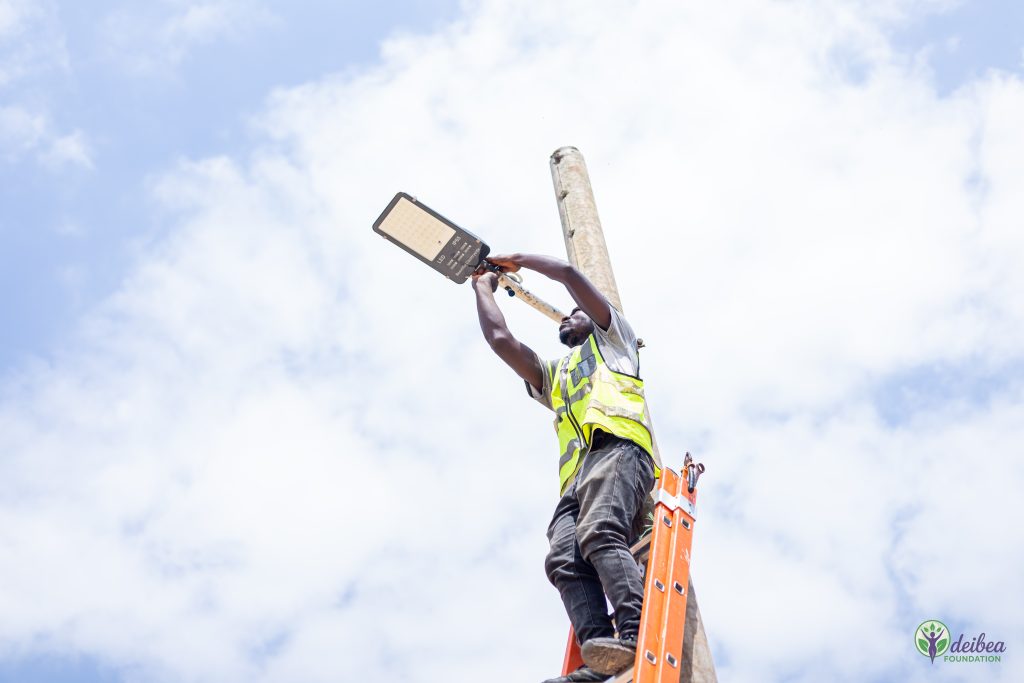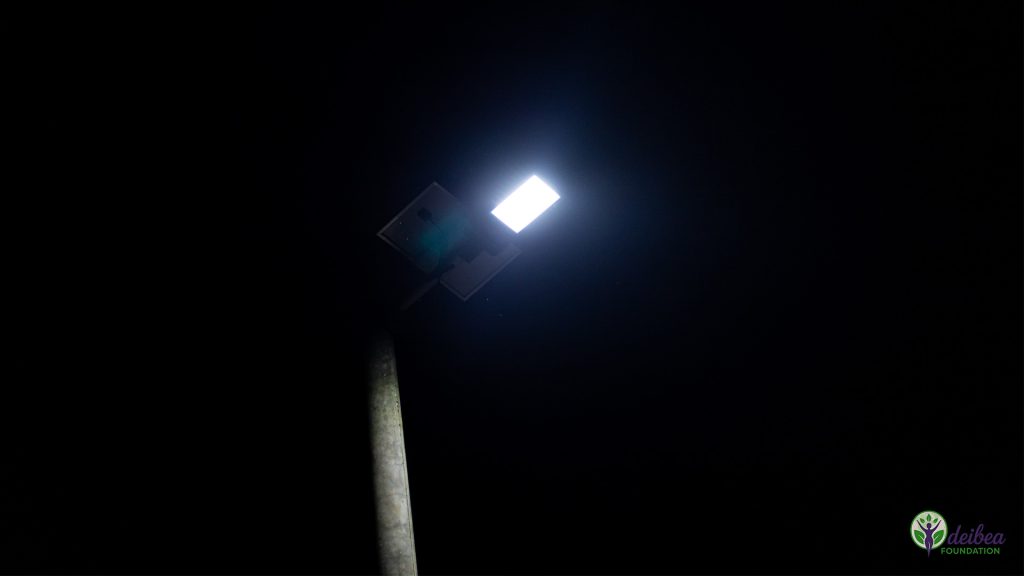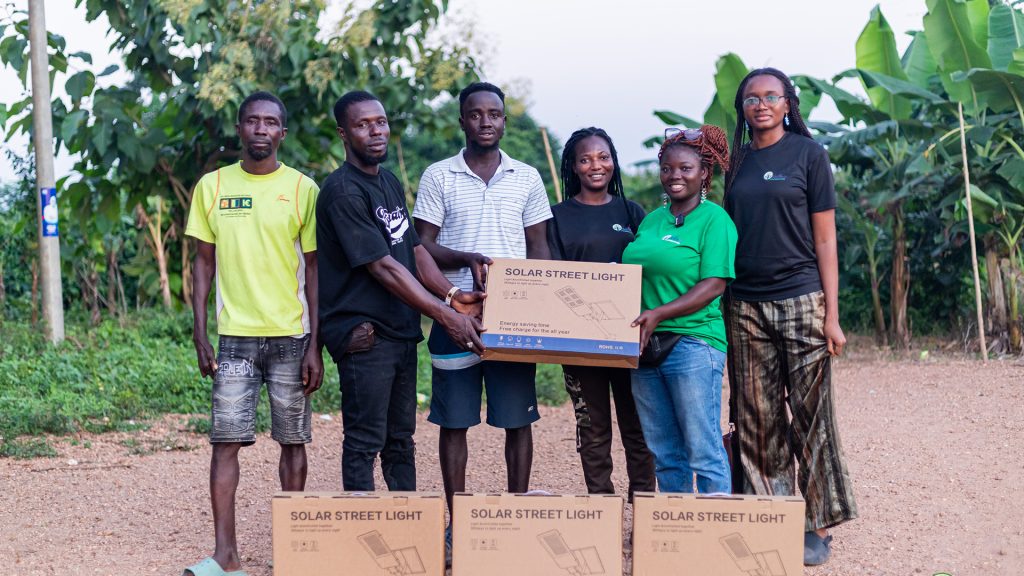In a bold step towards bridging the energy access gap in underserved communities, the Odeibea Foundation has successfully rolled out its Energy Equity Project in Twumwaase and Apeboaso, two rural farming and galamsey communities in the Ashanti Region.
The intervention, which took place on July 15, 2025, delivered clean solar-powered street lighting, solar bulbs and a comprehensive skills training program for teenage girls, combining environmental sustainability with economic empowerment and community wellbeing.

Founded with a passion to address the intersecting challenges of climate change, health, and gender inequality, the Odeibea Foundation is a Ghana-based nonprofit that drives sustainable development by promoting renewable energy, advocating for climate justice, and tackling the health impacts of environmental degradation. The Foundation is committed to empowering women and youth through education, skills development, and leadership opportunities enabling them to lead and inspire positive change in their communities.
Our mission is clear,” said Patricia Odeibea Bekoe, Executive Director of the Foundation. We aim to build community resilience by integrating clean energy solutions with gender-responsive programs that touch on economic empowerment, reproductive health, and climate education.”

The project installed several solar-powered streetlights across both communities to enhance security and improve nighttime access. In addition, teenage girls received hands-on training in sustainable beadmaking, an income-generating skill designed to nurture creativity and financial independence. However, while the session was well-received, participants expressed the need for continued mentorship and a dedicated space for further training. One young trainee stated her desire for more personalized learning, calling for the creation of a community-based centre to deepen skills transfer and continuity.
The project also brought to light several social challenges. Many girls shared experiences of poverty-driven early pregnancy and poor access to accurate sexual and reproductive health education. Alarmingly, reports emerged of some girls being introduced to family planning as early as age 10 years underscoring the urgent need for integrated reproductive health education within environmental programs.
Despite these challenges, the community welcomed the initiative. Residents showed interest in having a solar-powered center where they could watch TV, charge phones, and hold training activities. Many also called for more social interventions to run in tandem with energy-related projects.

Although not a core focus of the initiative, the issue of illegal mining (galamsey) emerged as a dominant concern during community discussions. Its impact on local livelihoods and environmental degradation signals a pressing area the Foundation may consider in future programming.
As the Odeibea Foundation continues its work, it remains guided by its vision: To create a resilient society where communities especially women and youth are empowered to lead sustainable change in health, climate, and energy systems.
The Energy Equity Project is more than just solar lights,” Patricia Bekoe emphasized. It is about transforming lives, empowering girls with knowledge and skills, addressing deeply rooted social issues, and building sustainable communities where no one is left behind.”
The Foundation plans to scale the Energy Equity Project to other underserved communities across Ghana in the coming months, further cementing its role as a frontline actor in Ghana’s just energy transition.

